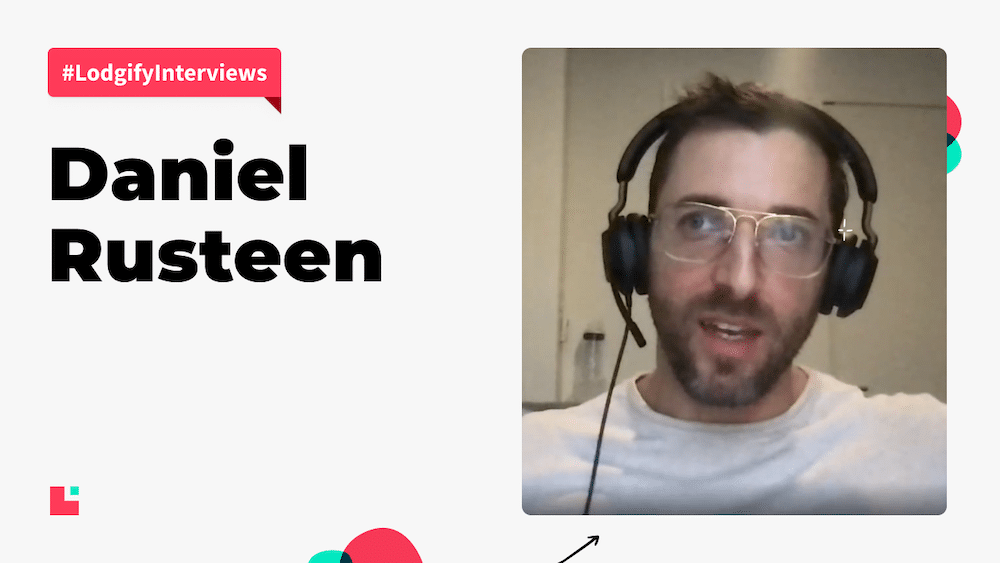Airbnb Superhost, author, and creator of the highly successful YouTube channel ‘Optimize My Airbnb’, Daniel Rusteen, sat down with Lodgify’s Alvar De la Viuda Garcia to discuss an array of absorbing topics within the short-term rental industry.
From writing his book ‘Optimize Your Bnb’ to the concept of Future Potential Guests and micro-markets, Daniel reveals essential industry insights and valuable host advice.
How did you get started in the vacation rental industry, and how did you get the idea of starting your YouTube channel?
Daniel: I found Airbnb, and I started working for them. I began renting out a couch in my living room, the same way that Airbnb started. Then I worked at a short-term rental vacation company before buying my own rentals. I manage them, and I help vacation rental hosts around the world.
I didn’t know there was a space on YouTube for vacation rentals, same with the book. I just published the book I did and started a YouTube channel. I can remember the first video I did like it was yesterday. I was in Mexico City in 2017 or 2018. I sat in front of this loud fountain. I didn’t have a microphone. It was such a bad idea. But I enjoyed making videos. I’ve been doing it for a while, and I just passed 10,000 subscribers.
What are the main changes in the industry since you started out?
Daniel: The main changes that I’ve witnessed, and it’s the reason why I wrote this new book, which is called ‘Profitable Properties’, is when I started out, most people were renting an existing property that they already had, most people, some people were doing rental arbitrage, but basically, no one was thinking, “I’m looking for a short-term rental that’s in a good area, that’s going to rent well.”
Fast forward to this year, and that’s the most important part of the game; finding profitable markets and finding profitable properties in those markets.
This game is no longer super easy. It used to be super easy, and hotels had it really nice. You just put a property up, and you started making money. I got $130 a night from my couch. I don’t think I could do that anymore.
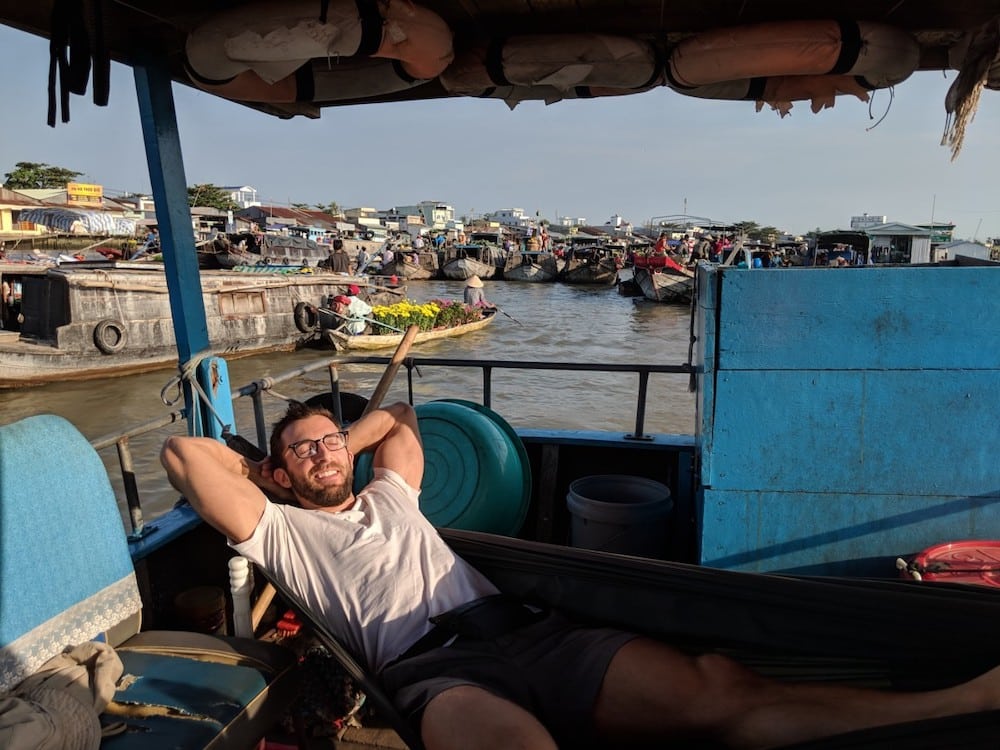
Could you tell us what is meant by micro-markets?
Daniel: Yeah, so I break down markets into two categories: ‘Discovered’ (New York, Los Angeles, Barcelona) and ‘Undiscovered’, which are areas that are markets that still have guest demand coming in, but it’s not super on the radar, it’s not super popular.
Then one level down is the micro-market or the micro-neighborhood. It’s a specific portion of that neighborhood, whether it’s nearby some kind of a landmark, for example. I have my Airbnb called the ‘Belmonte Penthouse’ in Columbia. I am next to ‘Parque Lleras’, which is a micro-neighborhood of the Poblado neighborhood, and that is why my place is so profitable. I figured out who my ideal guest is and what they are looking for.
With the Academy videos, we tell aspiring hosts that they have to target a specific type of customer.
Daniel: Right. I have a chapter in the book called ‘Know Your FPG’, Future Potential Guests. On Airbnb, there are lots of standard listings where hosts cater to everybody. My FPG is groups of guys in their 30s and 40s coming to stay in a place near restaurants, Parque Lleras, and some clubs. So, I provide them with an itinerary, I provide them with information like where the best cafes in the morning are, where the best restaurants are etc.
Knowing your FPGA is super important. There’s a whole bunch of FPG personas who are coming to your market. Of those people, who’s coming to your micro-neighborhood, and why are they coming? If a family is coming, the lowest hanging fruit is providing amenities for a family, if you have three bedrooms, make sure the dining table has room for six people, for example. Sometimes I see a two-person table in a three-bedroom house, it doesn’t make sense.
What would you say comes first, identifying the market or the FPG?
Daniel: I would start with finding a profitable market. Actually, it’s a good question because looking for profitable markets is not only looking at the numbers but finding out who those FPGs are. So you have to kind of couple those both together.
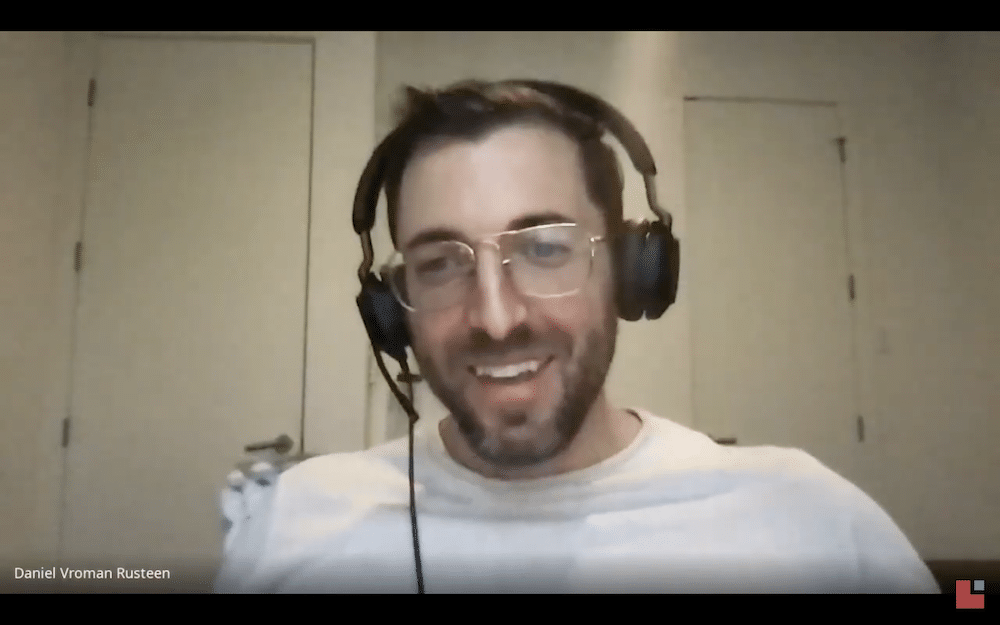
How would you make sure that you have returning guests? Making sure that you identify your type of customers?
Daniel: Yeah. That’s something you would consider right at the beginning. And that’s a factor for a profitable market because if you have return guests, then you don’t need to rely on brand-new customers. Any business person knows that if you’re an Airbnb host, if you’re a short-term rental host, you are a business owner, and you have to start thinking about that.
Any business owner knows that a new guest is much more costly than retaining the one you already have. But some markets just don’t have repeat guests. And that’s fine as well.
The ‘business mindset’. You have to treat it as a business, right?
Daniel: It is a business. You have to pay attention to it. I don’t want to say it’s easy money because there are a lot of Airbnb ‘gurus’ out there who are saying it’s super passive income. It is not passive income, for sure. It’s good income, it’s very profitable income, but it’s not passive income.
What I do is leverage the available tools. It takes me about one hour per week to manage my property. The main thing that people haven’t picked up on yet is that the property manager concept is old. The cleaner should be the property manager. The cleaner is a natural property manager, they’re already at the house! What does the property manager do? They respond to messages, you can automate that, you can really automate that to a really high-level degree.
So I don’t use property managers, I use my cleaner, and I pay them very well. They do a lot of stuff for me, and they helped me with my review rate because they’re actually there face-to-face with the guest.
With the technology available, it’s possible to automate many procedures. In what ways can we retain the human aspect of hospitality with our guests?
Daniel: Be sure that the guest wants the human contact first. You want to automate everywhere that you can automate that doesn’t affect the guest experience. I actually do a live check-in, and it makes sense for me because my guests are American, they’re coming to a country that hasn’t got the best reputation, and someone’s going to be there waiting for them.
I’ve also created an itinerary. Most of my reservations are two, three, four, and sometimes five nights, so I made a two-night itinerary and a three, four, and five-night itinerary. So when the guest comes, I send them this itinerary, which is not super generic, it’s actually cool things like restaurants, where to go if they want to learn Spanish or salsa, and I send it to them. It makes it seem super customized. That’s a really low-hanging fruit to do.
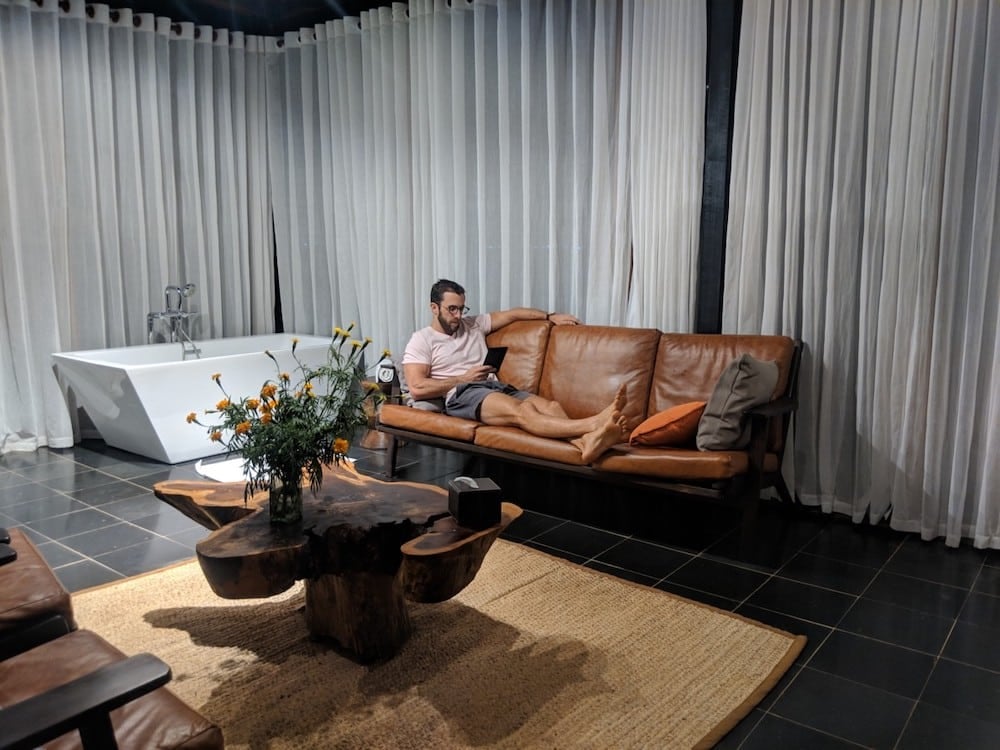
What words of encouragement would you give to hosts who may be intimidated by the business side of managing a vacation rental?
You can leverage a bunch of tools. I take one hour a week to manage my business.
How do you imagine the future of the vacation rental business in the next five to 10 years?
Daniel: It’s not going anywhere. It’s staying here. The biggest difference we’re seeing right now is there are a lot of hosts who’ve heard it’s easy money, and there are those who are more professional about it and leveraging and optimizing more things.
Direct booking is a very big topic, and in my book, I recommend Lodgify as a direct booking partner because your PMS system integrates very nicely for direct bookings, and that’s not going away, but Airbnb isn’t going away either.
Some people think that Airbnb will go away and people will just direct book. No, there are a lot of benefits to Airbnb. So in a few years’ time, direct bookings will get more popular. What you need to do is just focus on optimizing where you can. If you go into this with a passive mindset, you’re going to fail.
And what about Airbnb as a marketing tool?
Daniel: I used to be anti-direct bookings. My theory was to go on Airbnb and don’t diversify. Let’s be clear, Airbnb is still the market leader, and that’s where you should start. But, when you go to sell your home in five years’ time, if you have a direct booking website that gets 5,000 to 10,000 views a month, if you have an Instagram channel with 1000 subscribers, and if you have an email list with hundreds of past guests, that represents a tangible, real-world value that has monetary value, and someone would pay for that.
If you’re being professional and conscious about it, you have to get a direct booking website, you have to get your guests’ data. Then, you have access not only to the guest but you have access to all of their friends and family. I offer the guests $250 off to them, all of their family, and all of their friends.
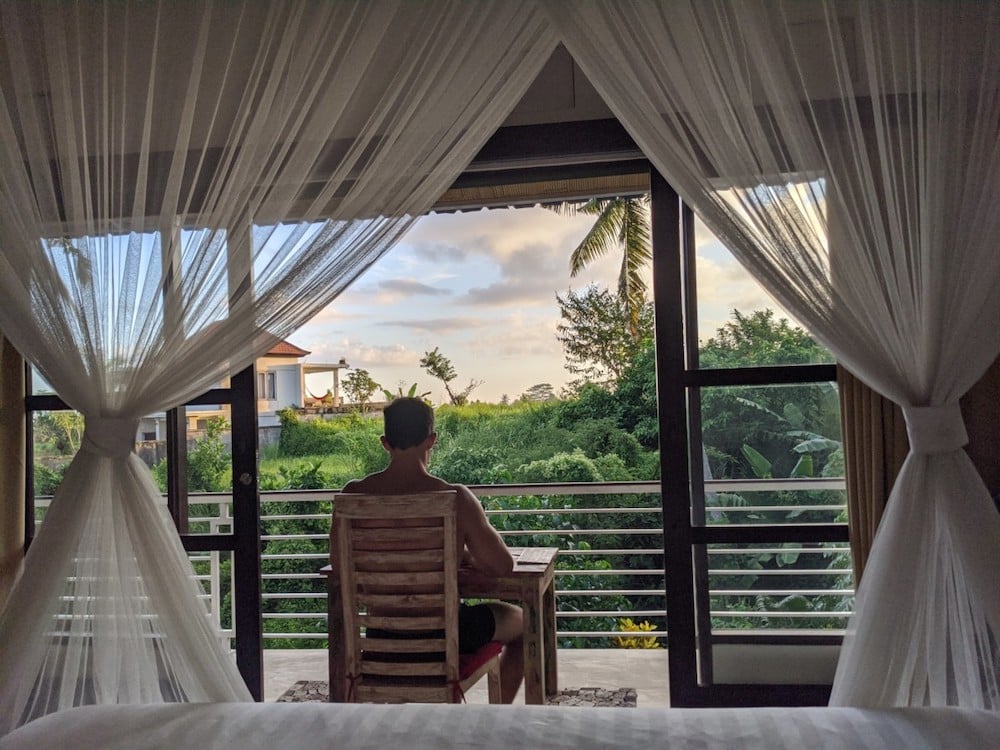
How much effort would you recommend vacation owners put into social media?
Daniel: Yeah, you should have a social media presence because it’s just very easy to do. If you’re going to put your brand name in your OTA listing, and a guest wants to find you outside, look at more pictures, look at 3D views, and videos, then just create an Instagram. Posting once a month is very easy to do.
Do you want to talk a bit more about your new book, anything that you feel might be interesting for our audience?
Daniel: The most interesting chapter is about how to get rid of a negative review and how to get it removed from your profile. There is a strategy on how to go about getting reviewed reviews removed. Review the Airbnb review policy and the content policy and make the rep’s job easier. Give them one reason why this review should be removed.
A lot of these negative reviews come from retaliation from guests who aren’t following the house rules. I’m impressed when I see listings with 300 or 400 reviews and a rating of 4.99 because I know they’ve had some human interactions where they just had to put their pride aside and give the guest a refund.
Managing expectations is huge. I’ve talked about that for years. Mismanaged expectations result in negative reviews.
Daniel’s latest book ‘Profitable Properties’ is the ultimate handbook for anyone looking to succeed in the short-term rental business. With insights from a seasoned Airbnb employee turned Superhost, real estate investor, and guest of over 2,000 nights, readers can learn how to surpass their competitors and maximize their earnings.
This book offers invaluable tips and tricks to help you optimize your rental properties and provide a top-notch experience for your guests. Whether you’re just starting out or looking to take your existing rental business to new heights, Profitable Properties is the definitive guide to short-term rental success.
Don’t see the form to download the Welcome Letter? Click here.
